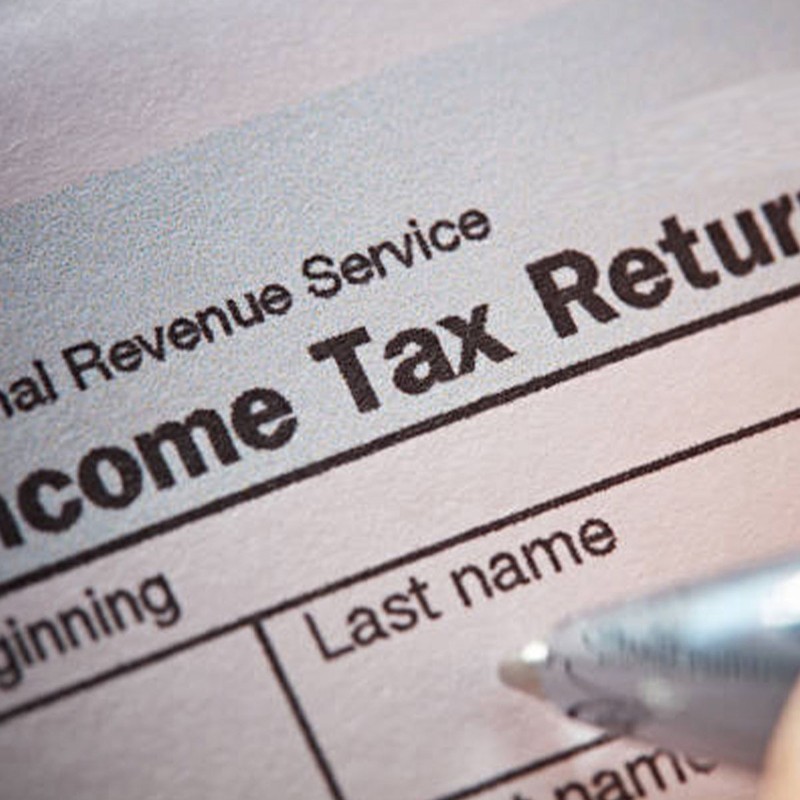What You Need To Know About Your Tax Return
First off, what is a self-assessment tax return?
Simply put, those who are self-employed – including freelancers, small business owners and contractors – are all legally required to submit a physical or digital self-assessment tax return to HMRC each tax year (which runs from 6th April to 5th April the following year). “Submitting a self-assessment tax return lets businesses report details of their taxable income and capital gains to HMRC and allows them to claim relevant tax allowances and reliefs,” explain the experts from financial giant AXA. “HMRC then uses the information on business’ tax returns to calculate their tax bill and determine whether or not they’re due a tax refund.”
How do you know if you’re eligible?
According to the Money Advice Service, there are several criteria which mean you’ll need to think about filing a tax return. They include:
-
If your self-employment income was more than £1,000.
-
If your income from renting out property was more than £2,500 (you’ll still need to contact HMRC if it was between £1,000 and £2,500).
-
If you earned more than £2,500 in untaxed income, for example from tips or commission.
-
If your income from savings or investments was £10,000 or more before tax.
-
If you need to pay capital gains tax on profits from selling things like shares or a second home.
-
If you’re a director of a company (unless it was a non-profit organisation, such as a charity).
-
If you or your partner’s income was over £50,000 and you’re claiming child benefit.
-
If you have income from abroad you need to pay tax on, or you live abroad but have an income in the UK.
-
If your taxable income was over £100,000.
-
If you earned over £50,001 in the 2019/20 tax year (and £50,001 for 2020/21) and make pension contributions, you may have to complete an assessment to claim back the extra tax relief you’re owed.
-
If you are a trustee of a trust or registered pension scheme.
-
If your state pension was more than your personal allowance and was your only source of income.
-
If you received a P800 from HMRC saying you did not pay enough tax last year.
If you’re not self-employed, do you still need to file one?
Yes – there are examples where, even if you’re not self-employed, you may still be required to file a tax return. “As a rule of thumb, if you receive income that’s not taxed by deductions from your pay or pension under the pay as you earn (PAYE) system, then it’s highly likely that you’ll need to submit a self-assessment tax return at the end of each tax year,” explains the AXA team. For example, landlords who receive rent for letting out their properties are required to submit self-assessment tax returns. If you’re still not sure, use HMRC’s self-assessment tool to work out whether or not you’ll need to submit a tax return.
How do you register for self-assessment?
Depending whether or not you’ve filed before, the AXA team advises following these general rules of thumb.
-
If you haven’t sent a self-assessment tax return online before: You’ll need to register online for the first time. HMRC will then send you a letter with your ten-digit unique taxpayer reference (UTR) and set up your account for the self-assessment online service after you’ve registered.
-
If you’ve sent a self-assessment tax return online before: You’ll need to re-register online using form CWF1 and have your ten-digit UTR to hand. If you’re unsure what your UTR is, you can find it here. Once you’ve registered online, you’ll receive a letter that contains an activation code for your account within ten working days. Don’t worry if you lose or forget your activation code, you can always apply for a new one.
What happens if you no longer need to file a return?
Once you’ve registered, HMRC will continue to remind you send in a self-assessment tax return each year until you let them know that you no longer need to submit one. “If you’ve let HMRC know that you no longer need to submit self-assessment tax returns but start up another business venture further down the line, you’ll have to re-register for self-assessment and get a new UTR,” advises the AXA team.
What information do you need to have ahead of filing?
When it comes to filing your tax return, it pays to get ahead by prepping the following paperwork. Start with your salary – use your P60 to record the income from your employment and the tax you paid. From there deduce your self-employment income – just remember that if you’re a sole trader, you’ll need to declare your income from self-employment against your allowable expenses. Then, factor in any dividends, rental income, pension contributions or payment on account. “This is an advance payment towards your tax bill, which can be made at the end of January and July,” explains the AXA team. Finally, a P11D form provides HMRC with information on any taxable benefits provided by your employers – e.g. private medical insurance – and it’s important not to forget about capital gains: profits made from selling property related to the business or shares.
And what are the deadlines?
Each tax year runs from 6th April to 5th April the following year, but the self-assessment registration deadline is 5th October for each tax year and the deadline for online payment – and payment of tax owed – is 31st January of the following year. “For example, say you set up your own business in August 2019. You’re legally required to submit a self-assessment tax return for the tax year that runs April 6th 2019 to April 5th 2020,” advises the AXA team. “To stay in HMRC’s good books, you’d need to have registered for self-assessment by 5th October 2020 and submit your tax return – and pay any outstanding tax owed – by January 31st 2021.”
What happens if you miss the deadlines?
“Missing the registration deadline could result in you being fined, unless you can provide HMRC with valid reasons and still manage to submit your self-assessment tax return and pay any outstanding tax by 31st January,” warns the AXA team. “However, the penalties for late tax returns are more severe.” If you miss the payment deadline, you could face an initial £100 fixed penalty, which applies even if there is no tax to pay, or if the tax due is paid on time. After three months, additional daily penalties of £10 per day will accrue, with up to a maximum of £900. After six months, there’s a further penalty of 5% of the tax due or £300, whichever is greater, and after 12 months, another 5% or £300 charge, whichever is greater. There are then additional penalties for paying late – 5% of the tax unpaid at 30 days, six months and 12 months. “HMRC can also punish businesses that they believe are deliberately not providing the necessary information or trying to conceal the true amount of tax they owe,” adds the AXA team. “If your business is found to be guilty of these activities, you could receive a fine of up to 100% of you tax liabilities on top of the penalties listed above.”
Any advice for filling out a tax return?
According to the AXA team, the most important things you can do is allow yourself plenty of time, and seek out professional advice where needed. “Try not to leave your tax return till the last minute. Handily, HMRC’s system lets you save your progress as you work your way through the form, meaning you can complete it in chunks instead of one fell swoop.” As for more complicated needs, expert advice might be the way to go: “Get in touch with financial experts and ask for advice on areas you’re having difficulty with,” advises the AXA team. “It’s better to seek the help of others than inputting incorrect information to meet a deadline and risk being fined.” From there, make sure you’ve checked everything over for accuracy’s sake. “Accuracy is vital when it comes to filing and submitting your self-assessment tax return” agrees the AXA team. “It goes without saying, but make sure you spend time double, triple and quadruple-checking each section of your tax return to help prevent being hit by fines later.”
How do you actually make your payment?
There are several ways to pay your tax bill, but the length of time depends on which method you choose. If you’re making your payment close to the deadline day, you should choose one of the faster options to make sure you don’t get penalised. Online or telephone banking, Clearing House Automated Payment System (CHAPS), debit or corporate credit card and in person at your bank or building society, are the fastest ways to pay. You can also arrange for a bank transfer, direct debit or send a cheque. It is also possible to make payments in instalments, but these are an advance on your next tax bill. “You can arrange for what is called a budget payment plan through your online account and decide how much you want to pay each week or month,” explains the Money Advice Service. “You can also choose to stop paying for up to six months – the only restriction being you must be up to date with your previous self-assessment payments. However, you cannot use this to pay for a previous tax bill in instalments.”
For more information on filing your tax return visit Gov.uk, TaxAid.org.uk, AXA.co.uk and MoneyAdviceService.co.uk.
*DISCLAIMER: Anything written by SheerLuxe is not intended to constitute financial advice. The views expressed in this article reflect the opinions of the individuals, not the company. Always consult with an independent financial advisor or expert before making an investment or personal finance decisions.
DISCLAIMER: We endeavour to always credit the correct original source of every image we use. If you think a credit may be incorrect, please contact us at [email protected].


